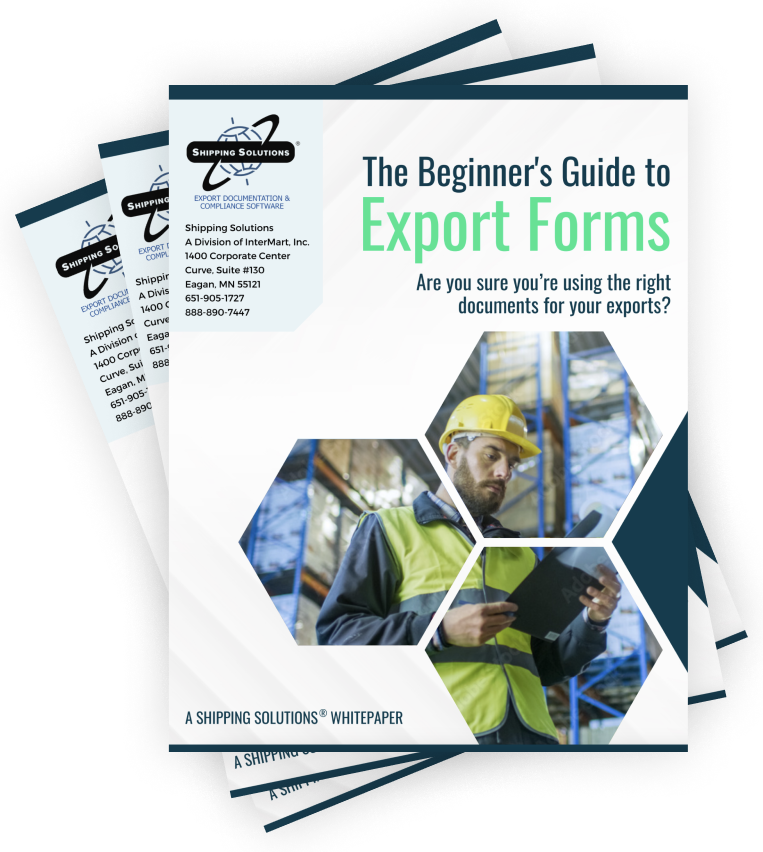The International Trade Blog Import Procedures
So You Want to Be a Customs Broker?
On: October 28, 2012 | By:  John Goodrich |
4 min. read
John Goodrich |
4 min. read
 So you want to become a customs broker?
So you want to become a customs broker?
What? Are you crazy? Do you know what becoming a broker holds for your future? Well, let me tell you! (As if you had a choice.)
First, you will never know quite what to call yourself. My license refers to me as a Customhouse Broker yet the regulations refer to Customs Brokers. I suppose I could abbreviate that by simply stating CHB, but then I am chancing my spell-check inserting a vowel and implying something negative about my weight.
Second, you will no longer be the life of the party. Try this at your next barbeque. Introduce yourself as a customs broker. Watch your friends fumble, look at the tops of their shoes, and quickly turn the conversation to the subject of their trip to the Caribbean and how tough it was smuggling that Cuban cigar back into the country. Within one minute you will find yourself standing alone examining the dandelions in the lawn.
Frankly, I now invent a new career for myself and tell them I am an actor, an astronaut, an ex-convict, or simply a fraud. Admittedly this is deceptive but it is much more entertaining.
Alternatively your friends and family will misunderstand your chosen career and begin to ask for investment advice or assistance with real estate.
If I am unable to dissuade you from your ill-fated path, I might as well help you along the way.
Are You Eligible to Be a Customs Broker?
Before becoming a broker you must know if you are eligible. The regulations state that you must:
- Be a United States citizen at least 21 years old.
- Not be a current federal government employee.
- Possess good moral character.
Becoming a broker involves submitting an application to U.S. Customs and Border Protection (CBP), passing a test, and undergoing a background check. The current fee for this process is $200. The details for applying are provided on the CBP website.
Prepare Yourself for the Customs Broker License Exam
Some broker candidates mistakenly believe that their entry-writing experience within a brokerage firm is sufficient to pass the test. Unfortunately the exam deals less with the mechanics of a customs entry and more with the complexities of customs regulations.
The test covers four areas of rules and regulations:
- The Harmonized Tariff Schedule of the United States (HTSUS)
- Title 19, Code of Federal Regulations (CFR19)
- Specified Customs Directives
- Customs and Trade Automated Interface Requirements document (CATAIR)
Obviously, to be prepared, you will need to read and, yes, understand these documents. If you are unwilling to do this reading, do not even attempt taking the exam. This is, perhaps, where the majority of the test-takers go wrong. I found a couple of techniques helpful in doing my reading.
As with much of federal regulation, the reading is ever so slightly dry. OK, it is downright boring. To counter this I would stand at the table and read until I fell asleep. Hitting the floor was an effective alarm clock and would prepare me to read a few more pages. On my less sadistic days I would insert M&Ms between the pages of the book and reward myself along the way. Of course that might be where the moniker CH(u)B came from.
It is highly recommended you index your HTSUS and the CFR19. This will help you navigate the publications quickly during your test.
If at all possible participate in a study course prior to taking the exam. The courses will help focus you on the key exam areas and will validate your understanding of the regulations.
Take Practice Tests
Examples of previous broker exams and their answers are available at the CBP website. Download these exams and time yourself as you take them. You might think four hours would be sufficient to take this test, but you will be amazed how quickly that time can go by.
The answer keys to each exam reference the regulations. Take note of how often certain areas of regulation find their way into the exams. For example you will discover that 19 CFR §152 regarding valuation will be tested in some way. You will also note that CBP has organized the test into several key subject areas including entry, classification and warehousing. If you identify the key areas of regulation you will be able to focus your studying time and increase your odds at passing the test.
Persevere!
Don't tell me I didn’t warn you! This is not an easy test. Passing rates for the exam are abysmally low. I am not sure if this is because applicants are lulled into thinking that an 80 question, four-hour, open-book test will be easy or if the test is poorly designed. There is likely some of both involved.
Even though you only need a passing score of 75, you might find you fail on your first attempt. Do not give up! Keep studying and take the test again.
Once you become a broker you will be one of about 11,000 who actively maintain their licenses. You will also find your credential will give you credibility with customers, colleagues and employers, and obviously also with Customs.
Of course, if this line of work doesn't work out for you there is always real estate.

About the Author: John Goodrich
John Goodrich is an International Trade Consultant and Licensed Customhouse Broker with more than 25 years of experience in international trade. He is currently the principal in the consulting firm of JD Goodrich & Associates where his varied industry experience results in practical, actionable advice for his clients.
An active member in the Twin Cities round table of the Council of Supply Chain Management Professionals (CSCMP), he takes a strategic view of the roles of international compliance and logistics in the greater supply chain.



